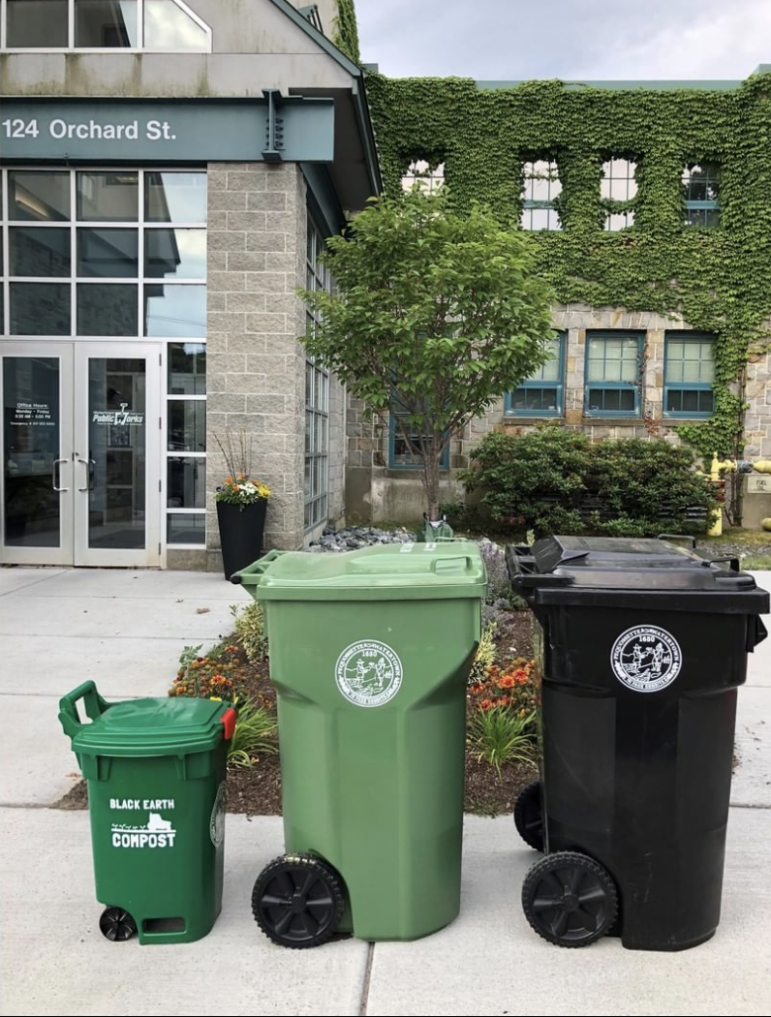
Watertown DPW The City of Watertown’s toters used for curbside composting, recycling and trash.
The City’s proposed changes to trash and recycling rules — including fees for disposing of bulk items, appliances, and mattresses — will be discussed by a City Council subcommittee. The subcommittee will also discuss fees charged to developers for new connections to the City’s sewer system.
In late August, the Department of Public Works announced the changes, and initially planned to put them into effect on the week of Sept. 12. City Manager George Proakis told the City Council Tuesday night that the new fees will be postponed, and recommended that the Council’s Public Works Committee discuss the changes.
City Council President Mark Sideris said that he has heard feedback about the changes, including that better communication about them was needed.
“Several of my colleagues reach out, so we decided we should probably have discussion at a subcommittee on the roll out of of policy changes for burnable items,” Sideris said. “We do have an opportunity for outreach on them, including in the upcoming tax bill and other ways.”
Sideris referred the new trash and recycling rules to the Public Works Committee.
“I do think we need to get these things implemented, but we do need to have a good plan to roll out to the community properly rather that just saying we are rolling out changes on such and such a date.”
The fees were put in place, Proakis said, in part because the State recently banned disposal of mattresses with regular trash beginning Nov. 1, 2022. Fees would also be charged for disposal of large items that do not fit into trash toter, for disposals of TVs, appliances, and other “white goods.” The proposal is to charge $25 for smaller items and $50 for larger ones.
The fees are just part of the changes to Watertown’s trash and recycling program, which also includes adding a third day of operation of the Watertown Recycling Center (Tuesdays along with Fridays and Saturdays), and the drop off of organic waste for composting at the Recycling Center. Those changes have taken effect, Proakis said.
The Public Works Committee will also discuss the fees paid by developers for inflow and infiltration into the City’s sewer system.
Those fees are paid when a new connection is made to the sewer system, Praokis said, and the City seeks to change the fee “to bring it closer to the actual costs.”